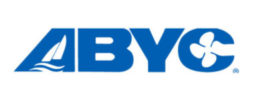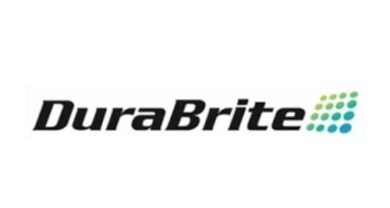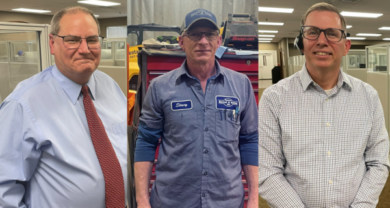Thinking Small
Parents may not want to admit it, but they know their kids have a major impact on their decisions, big and small. That influence extends from how the family spends its free time, but also to major purchases, from second homes and vacations to cars and, yes, boats.
In addition, childhood experiences play a huge role in determining not only the activities adults want to participate in today, but what they think their children will most enjoy and benefit from.
This is not new information. In fact, research conducted six years ago on behalf of the National Marine Manufacturers Association and the Recreational Boating & Fishing Foundation clearly underlined the benefits of boating for children and family relationships. However, the industry collectively has done little to attempt to increase the number of youth engaging in water sports.
“While almost every company at some time or another designed an ad that shows kids having fun in and around the water, it has not been an area of real focus in marketing,” says Tom Griffin, executive director of the National Youth Marine Alliance.
That’s why NYMA, with the support of a long list of boating organizations, is pursuing several initiatives to work more closely with the marine industry in driving increased participation in outdoor, water-based activities among kids. (See sidebar below). The group argues that, in addition to the societal benefits of getting more kids involved in water-based activities, increased participation can only help to grow boating.
“As with any industry that is trying to expand – or in some cases survive in a tough economy – they look at the demographics of the first-time boat buyer,” says Griffin. “In the case of the marine industry, that is upwards of 25 to 30 years of age. The challenge for an industry is that somehow they have to excite that target demographic enough to get them to choose boating as a recreational priority. That involves a process, and where the youth population comes in is to accelerate that process. The bottom line is kids can drive boat sales.”
“Through our research on the boater penetration of the general population, we know that we must convert, in the next few decades, a higher percentage of the population to boat ownership than exists today to just maintain sale levels,” comments Carl Blackwell, NMMA vice president of marketing and communications. “From a business standpoint, in addition to the fact that it’s a wonderful experience for our children, it’s vitally important for us that more kids are introduced to the joys of boating at an early age as they represent the future of our industry. That’s not meant to be a cliché, it’s a must for our businesses.”
This fall, the NYMA will launch an e-newsletter for the marine industry to increase its awareness of the importance of the youth market, complete with tips and information for boating businesses on how to engage kids and their parents as part of their marketing strategies. The newsletter will also work as a tool to draw attention to its Project Blue Champions Program, whereby individual companies can help support the NYMA’s work through contributions.
“It doesn’t matter if a company gives $50 or $50,000 to help build the alliance,” says Griffin. “Each and every industry Project Blue Champion is important. We will grow boating, one child at a time, one community at a time.”
The Facts
Studies conducted in 2002 on behalf of the Recreational Boating & Fishing Foundation and the National Marine Manufacturers Association revealed the following insights:
Getting Kids Involved
One of the best ways dealers and marina operators can get kids and families participating in activities on the water is to plan a special event. Making kids and families aware of the fun they can have is the first step to building participation and possibly boat ownership. Below are a few resources the National Youth Marine Alliance suggests you may want to consider to help jump-start an event. For more information, contact NYMA at (401) 935-6248.
Need the right tools to hold a special event? With the help of the Recreational Boating & Fishing Foundation’s Passport to Fishing and Boating Program, you can even recruit volunteers that have never been fishing or boating before. Passport is a hands-on, interactive program designed to teach families the basic skills needed to begin fishing and boating. The program includes teaching materials designed with the lay volunteer in mind, featuring background information, teaching tips and scripts detailing what to say and do. The Passport Program materials include color posters, scripts, activity cards, a boat-mat layout, and other teaching tools. To download Passport materials free of charge, go to www.rbff.org and click on the ‘Programs’ button at the top of the page.
Ocean Conservancy’s Good Mate program is designed to promote environmentally responsible boating and marina operations. Ocean Conservancy will provide a series of free brochures and a CD packed with educational information, helpful links, and other resources for boaters to learn more about boating clean and green. Even small day-to-day changes in the maintenance and operation of boats make a big difference to aquatic environments. For more information or to order free materials, contact Kathryn Novak at knovak@oceanconservancy.org or 727/369-6617.
Dealers and marina operators can hold Bassmaster CastingKids competitions, which test young anglers’ abilities in the basics of bass fishing — how to flip, pitch and cast. Each young angler aims for a target, and scores are based on where the lures lay to rest. If a business is a BASS Federation Nation member, its local chapter should have the information on how to host a CastingKids competition in that area. If a business does not belong to a chapter, it can co-host an event with an affiliated BASS club. Boy Scouts, church groups and community organizations are eligible to coordinate a contest. For more information, contact the CastingKids department at 877/BASS USA.
Help is often available from the local Sea Scouts, Power Squadron and Coast Guard Auxiliary. Also, free materials are available from the Coast Guard Auxiliary (www.cgaux.org), the US Power Squadron (www.usps.org), the National Safe Boating Council (www.safeboatingcouncil.org) and the Sea Scouts (www.seascout.org).




